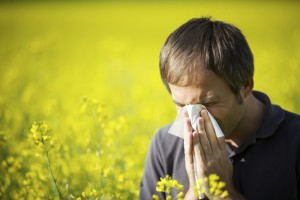 When studying abroad, there will be a number of changes that you will need to grow accustom to in your new country. Part of the excitement of studying in a new location is that students are able to have an educational experience different than the one back home. New food, weather, customs, language and time zones are all changes that those studying abroad look forward to. However, one less exciting change may included new allergens.
When studying abroad, there will be a number of changes that you will need to grow accustom to in your new country. Part of the excitement of studying in a new location is that students are able to have an educational experience different than the one back home. New food, weather, customs, language and time zones are all changes that those studying abroad look forward to. However, one less exciting change may included new allergens.
Prominent air allergens vary from region to region around the globe, the type of natural allergens within an area will typically depend on the vegetation and weather. Another allergen factor to consider is the amount of pollution in an area. Countries don’t have the same regulation as to what amount of pollution is acceptable. If you will be visiting a country that is lenient with the amount of pollution they allow, keep in mind that it may affect your allergies while studying abroad.
Along with air quality, something else to consider when it comes to your allergies while studying abroad is your diet. New cultures provide a wealth of new cuisine and while trying new dishes is an important part of being submerged in a new culture, it’s important to be aware of what you are consuming.
A few common food allergies of individuals around the world include:
- Strawberries
- Soy
- Nuts
- Seeds
- High Fructose Corn Syrup
- Chocolate
A third category to be aware of when evaluating what could disturb your allergies while studying abroad include toiletries. Different companies use different chemicals in their products – some of which may not be used in your home country products. If you are sensitive to chemicals, when studying abroad it may be a good idea to bring your own. Three common products to be aware of that often cause an allergic reaction are deodorant, toilet paper and latex based products.
Before you arrive in your host country, make sure that you have necessary allergy medication, the contact information for a local doctor or hospital and international health insurance that will cover you during your time abroad. Additionally, consuming local honey can be a great natural option for building a tolerance toward local allergens.
Young man in yellow canola field photo courtesy of Shutterstock
Category: Health & Safety Abroad
Tags: Allergies While Studying Abroad, studying abroad, travel allergies
